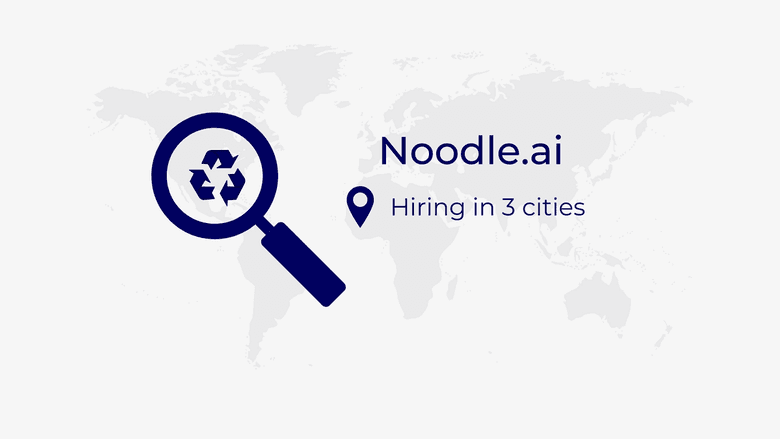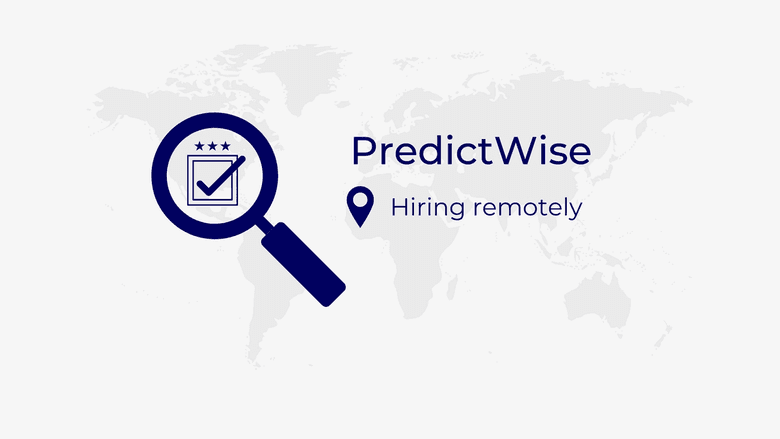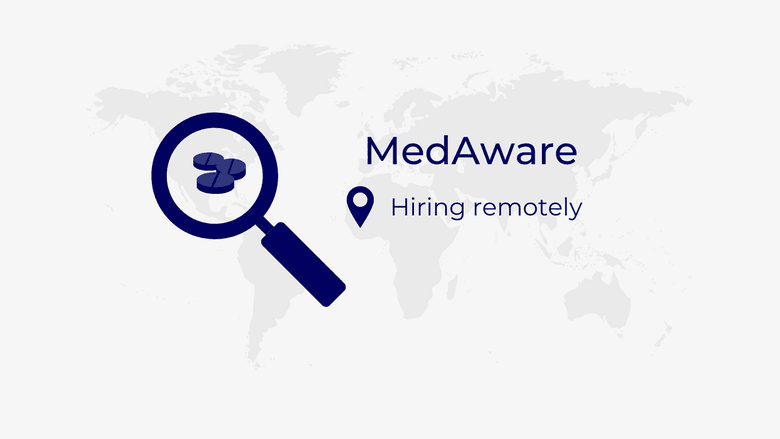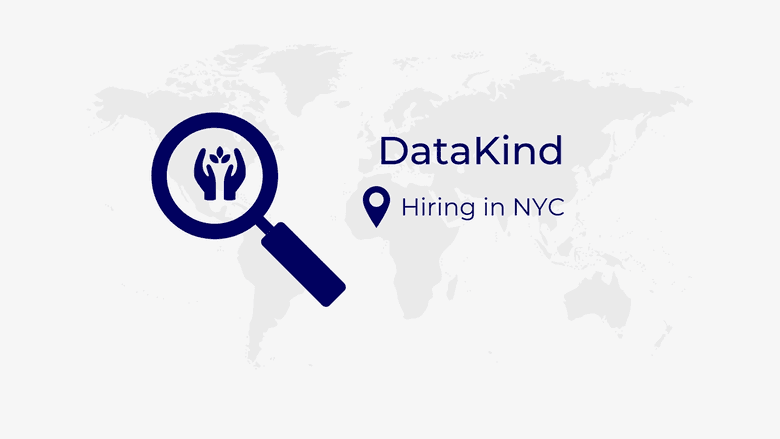4 Companies That Use Data Science for Social Impact
Data science is critical to solving the world's biggest problems. These companies are trying to do just that.
Data scientists are essential when it comes to solving some of the world’s biggest problems —like poverty, hunger and climate change—but many aspiring data professionals don’t realize their skills can be used for social impact.
In the private sector, data scientists earn six figures building AI and machine learning models designed to boost company profits, such as recommendation engines, risk assessment models and targeted advertising. But imagine building an algorithm that can predict which students are at highest risk of dropping out and intervening before it’s too late. Or enabling philanthropists to understand the impact of their contributions using predictive analytics.
Publicly available datasets are the key to solving some of the world’s biggest problems. For example, the government of the city of Buenos Aires provides open datasets on crime, government spending, COVID-19 vaccinations and more. The result is greater transparency around quality of life indicators such as road accidents, air quality and crime, thereby opening the door to better policy making and achieving the goal of using data for social impact.
Unfortunately, nonprofits tend to lag behind the private sector in terms of data literacy, and lack the deep pockets to compete with remuneration packages offered by big tech. Several tech companies including Pivotal, Cloudera, Splunk, Tableau and Informatica partner with nonprofits to help them solve social problems with data by continuing to pay their full-time employees while putting them to work on external projects.
That said, there are a few companies that use data science for social impact in their core operations, and not just as part of a corporate social responsibility program. Let’s take a look.
1. Noodle.ai

An AI startup founded in 2016, Noodle.ai aims to create a world without waste by applying data-led solutions to factories, supply chains and distributions, the largest sources of industrial waste. Some $2 trillion is lost every year in the supply chain due to excess inventory, product defects and unplanned downtime, and 50% of the world’s waste comes from industry.
Traditional rules-based software, which is trained on a historical dataset, falls short when it comes to unprecedented shocks like the coronavirus pandemic, which devastated food supply chains across the globe in 2020. By contrast, flow operations software solutions make real-time recommendations designed to maximize efficiency, such as AI algorithms that model where to direct fleets of trucks and trains to keep grocery stores stocked with essentials. The technology uses explainable AI, which is about finding and explaining the most valuable patterns hidden in your operations, predicting possible scenarios and continuously making recommendations that improve the flow of goods from raw materials to factories to shelves.
Jobs: Noodle.ai is currently hiring roles in data science, product, engineering and sales in various locations including San Francisco, Palo Alto and Bangalore.
2. PredictWise

An audience solutions company founded in 2010, PredictWise uses data mining techniques similar to big adtech companies to dish out highly targeted ads —but for a good cause. The company uses data science to increase voter registration and election turnout by reaching voters who are most likely to mobilize. No central database currently exists documenting all registered voters—each state maintains its own voter file—making it difficult for political candidates and voter registration groups to reach would-be voters. PredictWise builds and maintains its own databases by aggregating data from third party vendors, voter registration organizations and state-run databases. This results in highly granular data such as a person’s voter registration status, which social media platforms they use, how frequently they consume podcasts and video content, what publications they read, their political beliefs and what type of messaging is likely to galvanize them to the polls.
Political candidates then hire the company to use a combination of video ads, banner ads, email campaigns and sponsored social media posts to target voters of specific persuasions: for example, those who lean Republican but support universal healthcare.
“We don’t focus on the current state of the race; our goal is to change the state of the race through the ads that are delivered,” Nikhil Garg, a data scientist at PredictWise, said at an event in 2020.
However, unlike in traditional targeted advertising, where companies collect people’s personally identifiable information to deliver personalized ads, PredictWise only uses anonymized telemetry data from voter’s smartphones, such as their mobile identification number (a 10-digit number that a wireless carrier uses to identify a mobile phone).
Jobs: PredictWise, a fully remote company, is currently hiring a part-time data analyst.
3. MedAware

Founded in Israel in 2012, MedAware is an AI-based solution designed to cut back on drug prescription errors. In the U.S. alone, between 7,000 and 9,000 people die each year from physicians prescribing the wrong medications. MedAware’s platform applies machine learning algorithms and outlier detection mechanisms, similar to fraud detection systems used by financial institutions to identify credit card fraud. By continuously mining data from millions of electronic health records, the software flags medications that are in conflict with the profile of the patient, physician or institution.
Entrepreneur Gidi Stein founded the company after learning about the tragic death of a nine year old boy, whose physician selected the wrong drug by mistake on his electronic prescription pull-down list.
Jobs: MedAware is currently hiring a DevOps engineer.
4. DataKind

What started as a weekend event in New York City to bring together nonprofits and data scientists turned into a full-fledged company. DataKind connects nonprofits with pro bono data scientists to collaborate on projects, from one-hour data consultations to year-long engagements. The goal is to help organizations enhance their data literacy and develop evidence-based decision-making.
Data scientists can volunteer to solve important problems, like alleviating poverty using satellite imagery in collaboration with the World Bank. When the nonprofit DoSomething.org wanted to improve response rates for its Crisis Text Line “a 9-11 for young people in crisis” using SMS, a team of volunteer data scientists from DataKind sifted through the data and found that most of the intake surveys were incomplete. Based on these findings, the organization condensed the surveys and response rates rose from 20% to 75% in just three months.
“People from the data science community are working on problems that may not necessarily be the most personally satisfying— ad targeting, search, clustering of customer profiles—things that make money but don’t necessarily make us happy in our work,” Drew Conway, the cofounder of DataKind, said in a video posted to the organization’s website. “Our origin story of DataKind is trying to answer that question: how do we get data scientists to work with the social sector?”
Jobs: DataKind is looking for an Executive Director and a Technology Manager. The company is also looking for data scientists to match with projects. Apply today (volunteers only).
The information provided herein is for general informational purposes only and is not intended to provide tax, legal, or investment advice and should not be construed as an offer to sell, a solicitation of an offer to buy, or a recommendation of any security by Candor, its employees and affiliates, or any third-party. Any expressions of opinion or assumptions are for illustrative purposes only and are subject to change without notice. Past performance is not a guarantee of future results and the opinions presented herein should not be viewed as an indicator of future performance. Investing in securities involves risk. Loss of principal is possible.
Third-party data has been obtained from sources we believe to be reliable; however, its accuracy, completeness, or reliability cannot be guaranteed. Candor does not receive compensation to promote or discuss any particular Company; however, Candor, its employees and affiliates, and/or its clients may hold positions in securities of the Companies discussed.
